In search of clean water: human rights and the mining industry in Katanga, DRC

Today, around 1,8 billion people in the world do not have access to safe water. In the Democratic Republic of the Congo, the most water-rich country in Africa, 51 million people lack access to potable water; only 26% of the population has access to safe drinking water. This is one of the lowest access rates […]
Travail des enfants dans le site minier d’exploitation artisanale de Bisie en territoire de Walikale. Une crise oubliée en République Démocratique du Congo

Plus de deux décennies après l’entrée en vigueur de la Convention relative aux droits de l’enfant (1989) en République Démocratique du Congo (RDC), la situation des enfants dans le territoire de Walikale demeure critique. Certes, le travail des enfants est un problème mondial, mais c’est essentiellement dans les pays en développement qu’il compte la grande […]
Ambushed in Bangkok? The U.N. Panel on North Korea and the case of the IL-76 “4L-AWA”
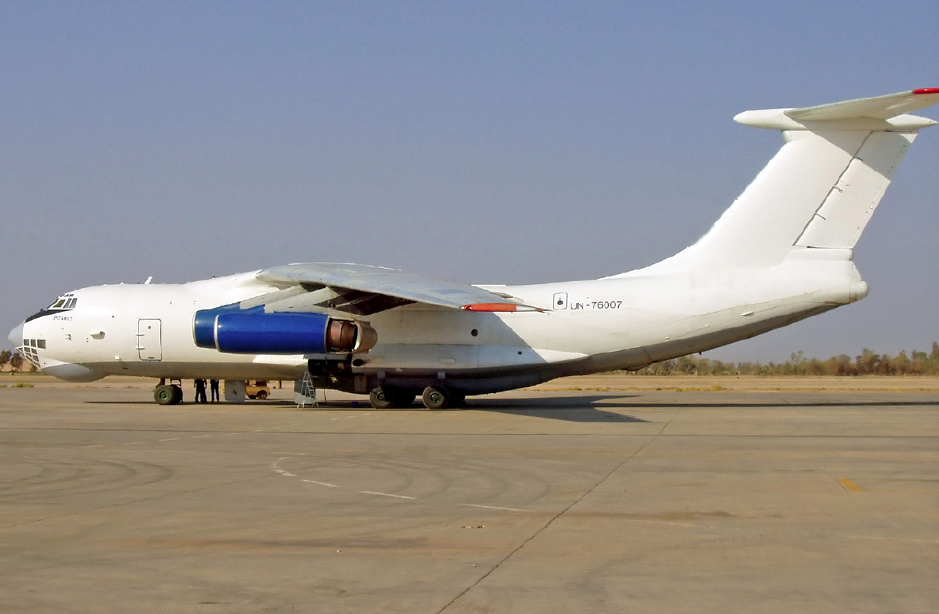
This new IPIS/Transarms report explains why the conclusion of the latest United Nations report on North Korea sanctions about an arms flight grounded in Thailand is not supported by facts, but based on a misalliance of wrong and misleading information gleaned both about the cargo aircraft. its flight and the entities involved, together with erroneous […]
Analysis of the interactive map of artisanal mining areas in Eastern DR Congo (2013)
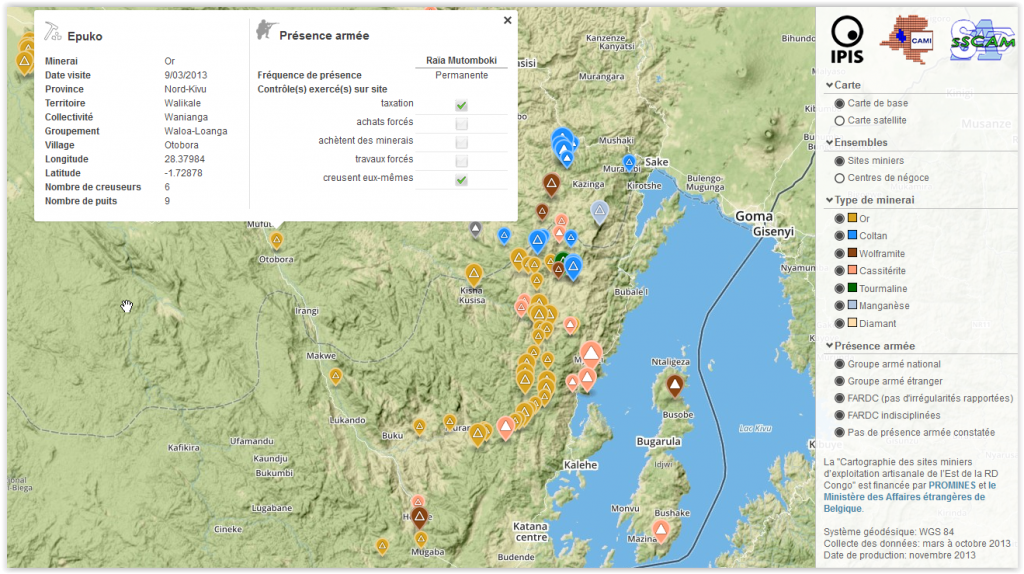
In August 2009 the ‘International Peace Information Service’ (IPIS) published a first map of militarised mining areas in Eastern DR Congo. By 2012, the international interest in the issue had grown but the map was out-dated. To find a structural solution, IPIS sat down with the Congolese mining cadastre (CAMI) and agreed to set up […]
‘Conflict Minerals’ initiatives in DR Congo: Perceptions of local mining communities
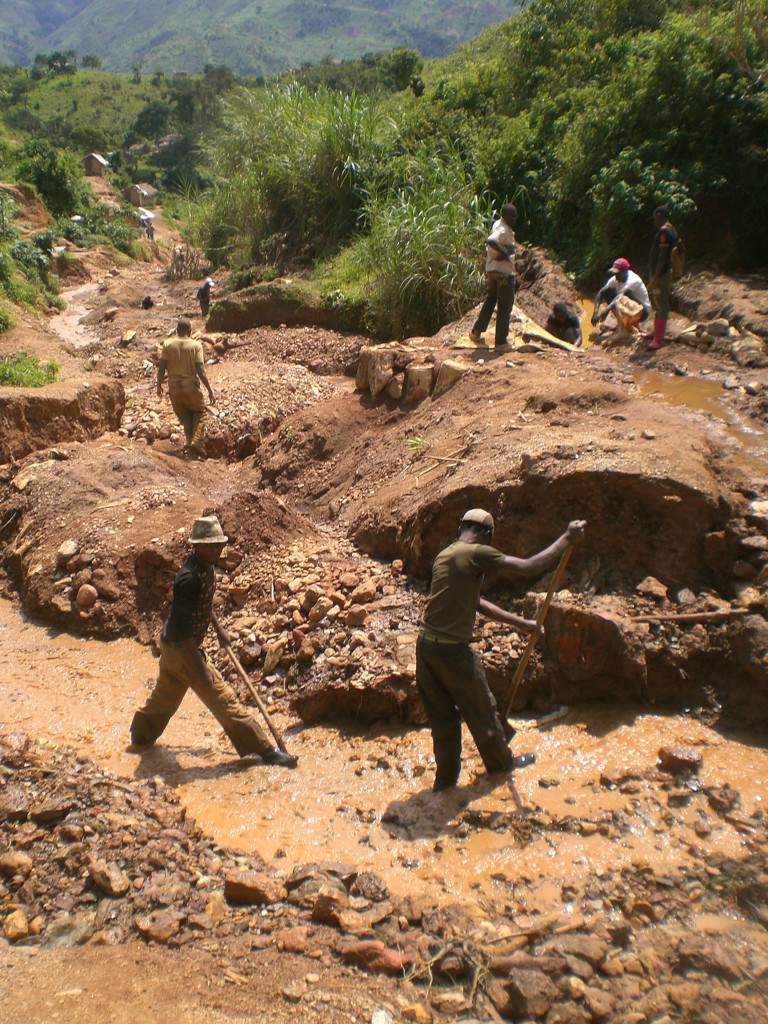
The exploitation of minerals is an important source of income for many communities in eastern Democratic Republic of Congo (DRC). Yet this mineral wealth also plays a significant role in the continuation of insecurity in parts of the country. Revenues from mineral trade have given armed groups the means to operate, and provided off-budget funding […]
Business, Human Rights, and Uganda’s Oil. Part I: Uganda’s oil sector and potential threats to human rights
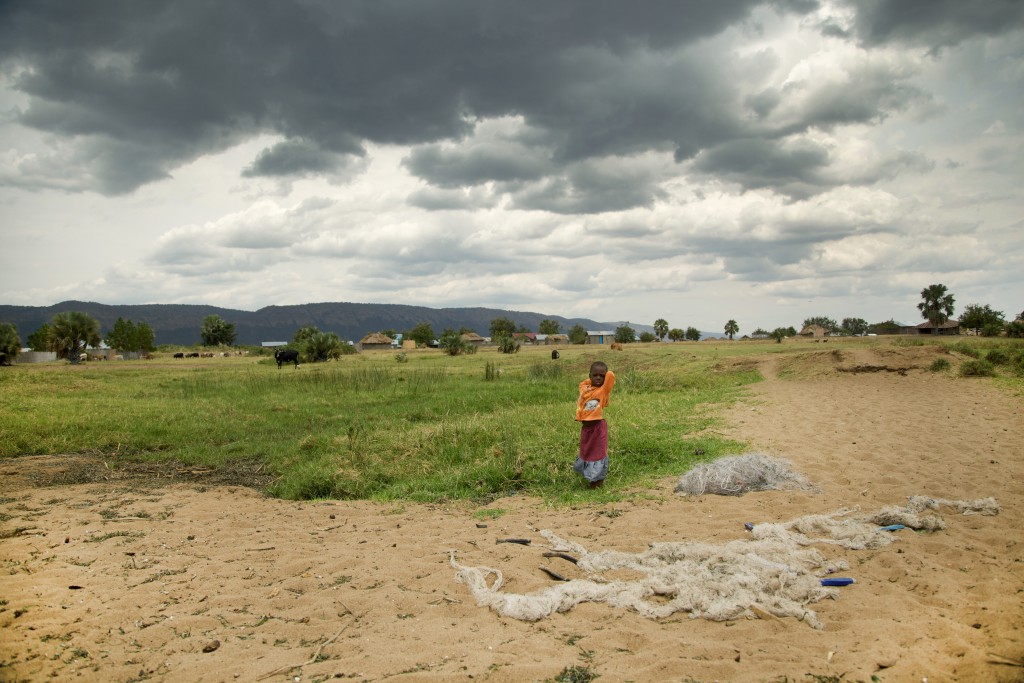
The following report is the first of a series of four collaborations between IPIS Research and ActionAid International Uganda. The series sheds a light on the oil sector in Uganda, its possible impact on human rights, and how government, companies, and civil society can best enable a positive bond between oil and the welfare of […]
Gold and diamonds in the Central African Republic. The country’s mining sector, and related social, economic and environmental issues.

Gold and diamonds in Central Africa easily conjure up images of conflict, rebel funding, human rights violations, and smuggling. As a country landlocked within an unstable region, neighbouring the Democratic Republic of Congo (DRC), and recently the scene of another coup, the Central African Republic (CAR) might be considered an appropriate candidate for analysis within […]
Pinocchio Ltd. The NRA and its corporate partners: US shipments of small arms ammunition by sea

The National Rifle Association (NRA) claims to have monitored in the last 20 years all United Nations activities that could impact Second Amendment rights. Its latest target is the Arms Trade Treaty (ATT), an international treaty to establish common international standards for the import, export, and transfer of conventional arms presently under discussion at the […]
The formalisation of artisanal mining in the DRC and Rwanda

This report describes and evaluates initiatives to formalise the artisanal mining sector in the Democratic Republic of the Congo (DRC) and Rwanda, in order to locate lessons learned. We hope that these perspectives will support the formation of well-informed policy and regulatory options – both by the EU and by harvesting countries – concerning the […]
Exploitation minière industrielle et artisanale au Sud-Kivu. Possibilités d’une cohabitation pacifique ?
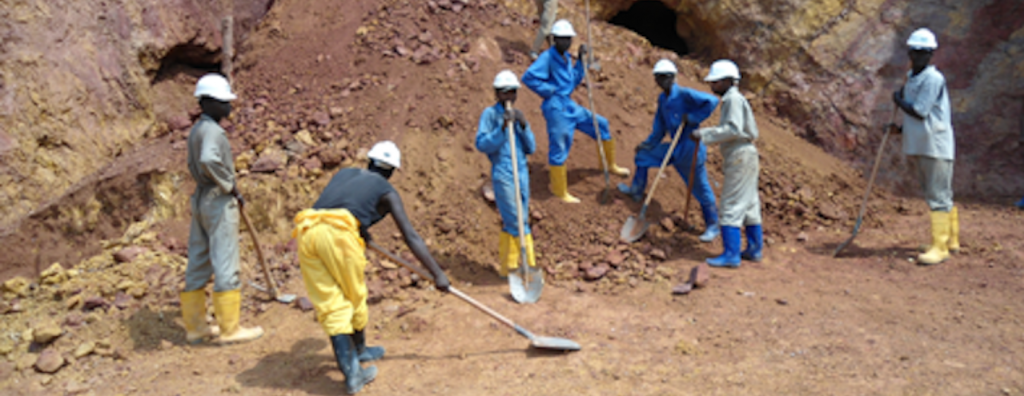
Le secteur minier en République Démocratique du Congo (RDC) en général et au Sud-Kivu en particulier alimente toujours les débats tant au niveau international qu’au niveau national. Présenté sous plusieurs facettes, ce secteur au Sud-Kivu a été dans le temps industriel, puis artisanal et aujourd’hui il est en même temps artisanal et industriel. Le retour […]
Mapping Conflict Motives: M23 (2012)
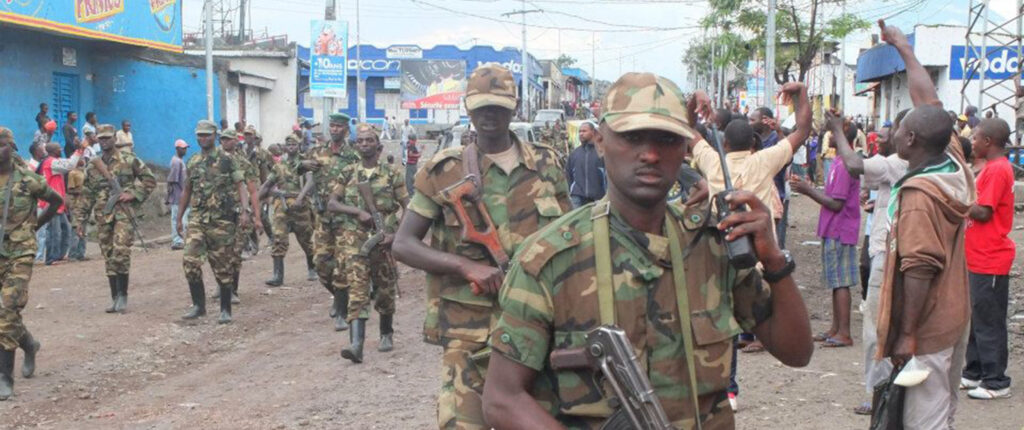
In light of the recent occupation of Goma by M23 and the renewed risk of large-scale armed conflict in the DRC, IPIS publishes an update to its 2007-2010 ‘mapping conflict motives’ report series focussing specifically on the intentions of M23. The M23 rebels show a clear political ambition and a tendency to establish political control […]
A Code of Conduct for Arms Transport by Air. Transport Services under an Arms Trade Treaty Series
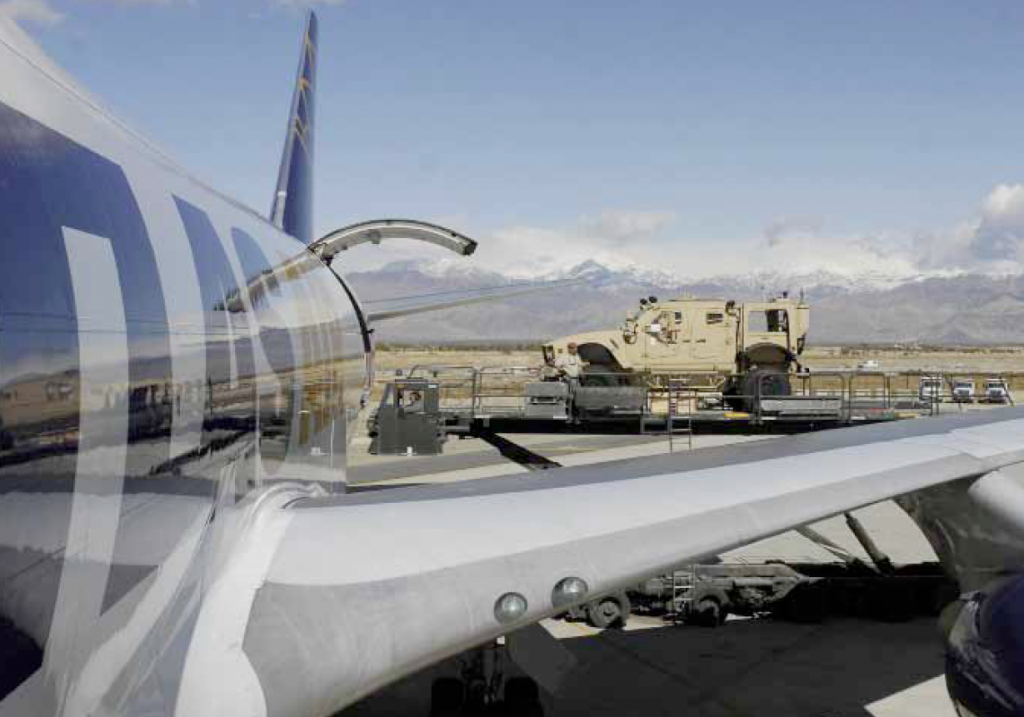
This report is a discussion of some key considerations for the development of and “Air Cargo Industry Voluntary Code of Conduct relating to the transport of arms, ammunition and other military equipment” (ACI Code). The purpose of such a Code is to encourage as many aviation companies and other actors as possible in the air […]
Rough Seas. Maritime Transport and Arms Shipments

As stated by the authors in their report “Transparency and Accountability” (February 2012), the Chairman’s Draft Paper (14 July 2011) presented by the Arms Trade Treaty’s Preparatory Committee (ATT PrepCom) included within the ATT scope certain activities that should fall under the category of “services”, such as transport and brokering. However, no provision has been […]
Upstream Implementation of the OECD Due Diligence Guidance for Responsible Supply Chains of Minerals from Conflict-Affected and High-Risk Areas. Cycle 2 Interim Progress Report on the Supplement on Tin, Tantalum, and Tungsten

Cycle 2 Interim Progress Report on the Supplement on Tin, Tantalum, and Tungsten. The following report is the second in a cycle of three on upstream companies’ implementation of the Supplement on Tin, Tantalum and Tungsten to the OECD’s Due Diligence Guidance for Responsible Supply Chains of Minerals from Conflict-Affected and High-Risk Areas. The objective […]
Vlaams Wapenhandeldecreet: Analyse en aanbevelingen
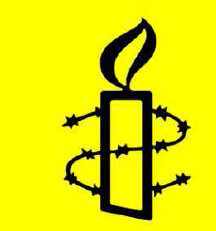
In november 2011 werd in het Vlaams Parlement een ontwerp van decreet ingediend ter vervanging van de federale wet van 5 augustus 1991 over in-, uit- en doorvoer van militair materieel, dit als gevolg van de regionalisering van de bevoegdheid inzake wapenhandel en van de Europese ICT-richtlijn die in mei 2009 goedgekeurd werd door de […]
Study on the development of a framework for improving end-use and end-user control systems

(UNODA Occasional Papers, No. 21, December 2011) Already, in 2002, the Security Council called upon States to establish an effective national end-user certificate system and to study the feasibility, as appropriate, of developing such a system at the regional and global levels, as well as information exchange and verification mechanisms. This study assesses existing practices […]
Transparency and Accountability. Monitoring and Reporting Methods Under An Arms Trade Treaty
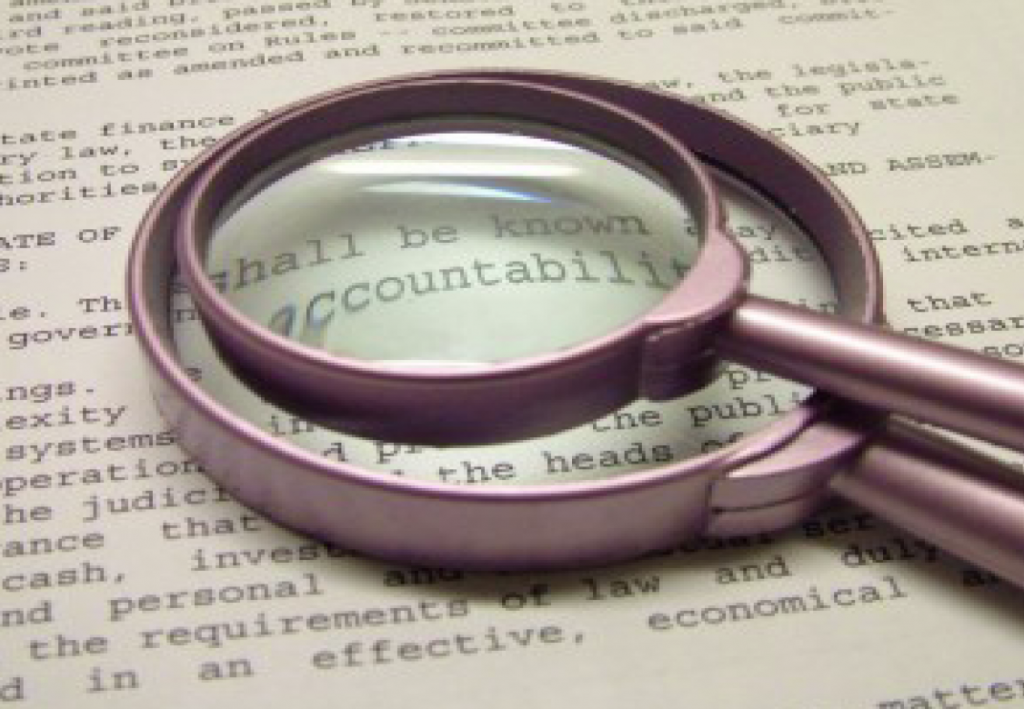
Without an understanding of the existing practices of States regarding their commonly agreed standards for the monitoring and reporting of their international transfers of conventional arms, it will be very difficult to draft many of the basic provisions of the Treaty to ensure compliance and enforcement. This report therefore seeks to clarify and discuss existing […]
Bisie. A one-year snapshot of the DRC’s principal cassiterite mine (2011)
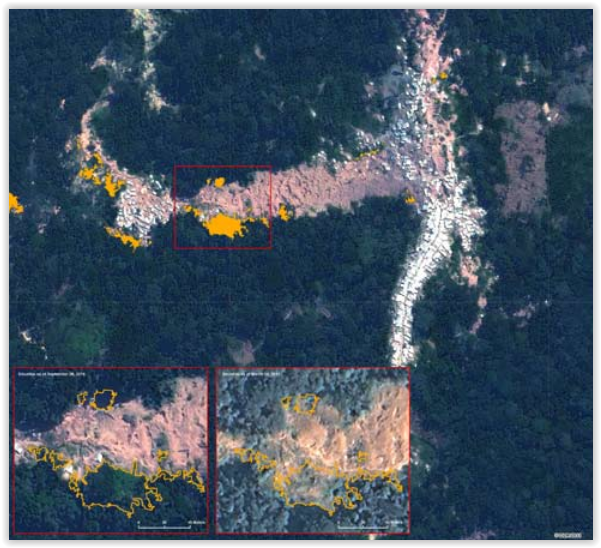
Much has happened in the mining sector of Eastern DRC over the last year. President Kabila imposed a ban on all mining activities last fall, during which production fell considerably. As soon as the suspension was lifted in the spring of this year, the major global electronic companies stopped buying minerals from the region, provoking […]
Violence against women in Eastern Democratic Republic of Congo. Whose responsibility? Whose complicity?
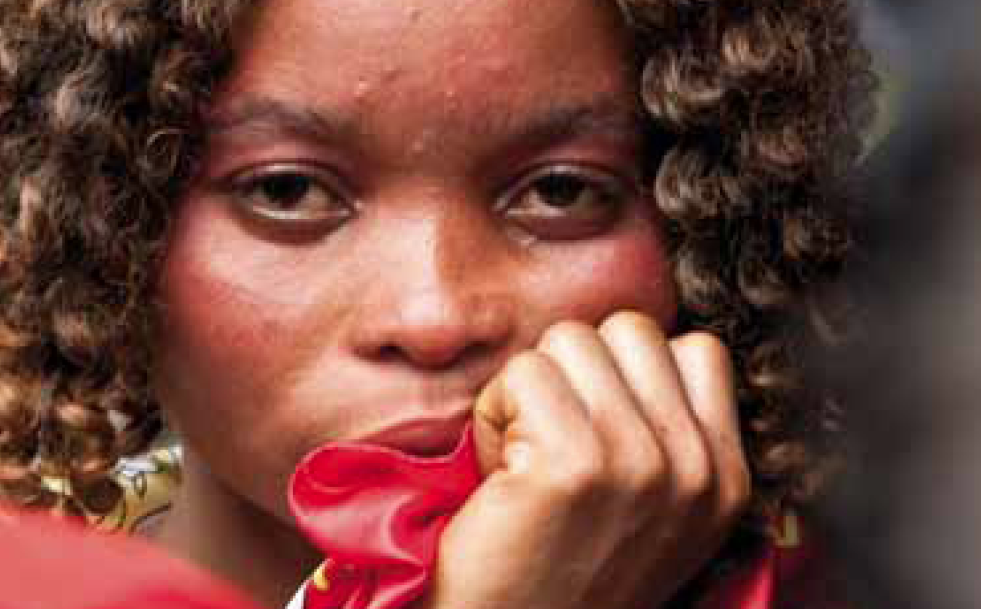
IPIS contributed to the research for and writing of this ITUC report. Summary: Eastern DRC has been ravaged by war and violence since the mid-1990s. Civilians carry the greatest burden of the conflict. Women and girls are especially vulnerable to such attacks. Hundreds of women and girls get sexually violated in their homes and at […]
Upstream Pilot Implementation of the OECD Due Diligence Guidance for Responsible Supply Chains of Minerals from Conflict-Affected and High-Risk Areas

Baseline Report on the Supplement on Tin, Tantalum, and Tungsten IPIS executed the research for and the writing of this OECD report. The present baseline report is the first in a cycle of three reports on the implementation by upstream companies of the Supplement on Tin, Tantalum and Tungsten of the OECD Due Diligence Guidance […]

